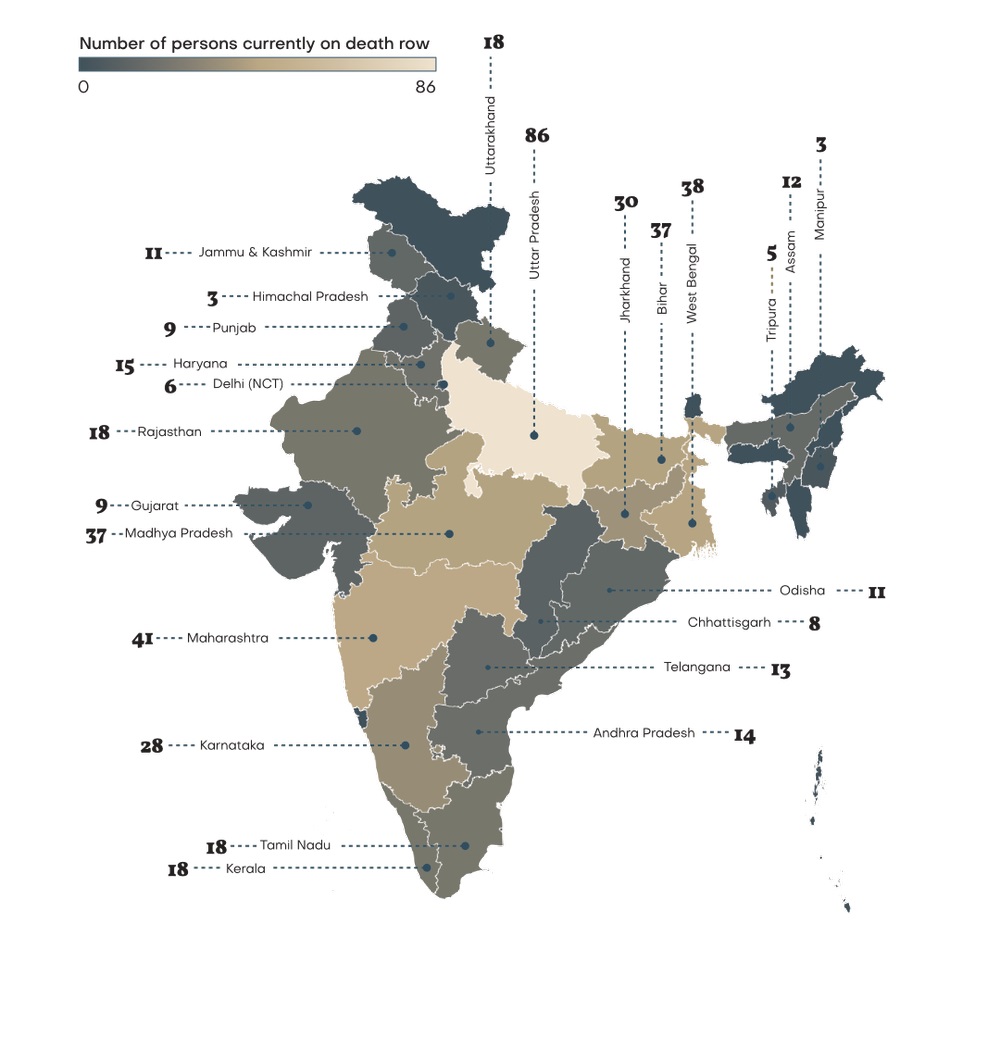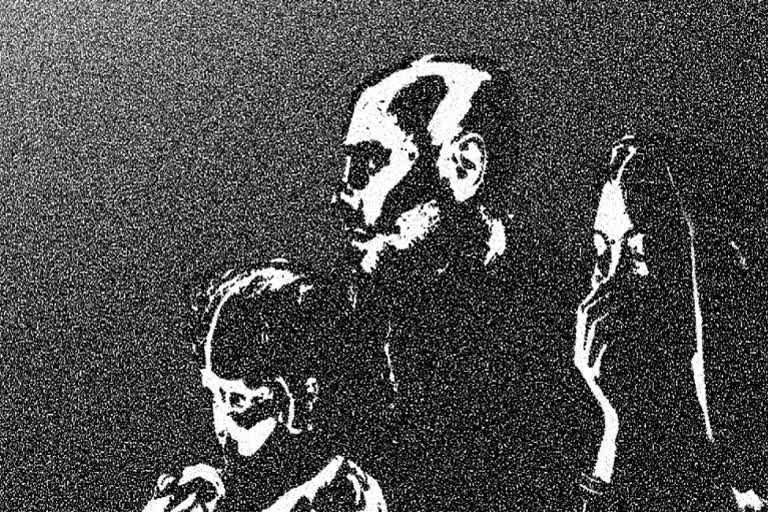New Delhi: The overburdening of pending cases in Indian courts has been a chronic issue but what is deeply worrying is the pendency pertaining to the number of prisoners on death row which stood at 488 at the end of 2021, according to a report by Project 39 A.
Published by the National Law University, Delhi, the report says that the trial courts imposed a total of 144 death sentences in 2021 and high courts decided only 39 matters in the same period. In 2020, high courts decided 31 matters related to the death penalty compared to 76 in 2019. The cases that went to the Supreme Court in 2021 pertaining to death sentences stood at nine. Five cases were commuted and the remaining four were acquitted.

Legal experts believe that until the legislature enacts a strong law on it, the death sentences would continue to swing in this manner. Voices from several quarters are also supporting the idea of abolishing the death penalty. Talking to ETV Bharat, Dr Adish Aggarwaala, President of the International Council of Jurists, said the cases pertaining to death penalties in the Indian Legal discourse are the rarest of the rare situations.
"While the Session Courts Judge may announce the death penalty, the verdict cannot be carried out without bringing the case to the notice of the High Court. There is a structural procedure that has to be followed. In case even if the High Court decides to uphold the decision of the lower courts, the accused has a period of 90 days to file an appeal to the Supreme Court. Even after then, they can file a mercy petition to the President of India," he said.
Recently, the Supreme Court said it would make it mandatory for lower courts to order a psychological evaluation of the convict and seek a report on their conduct, before deciding whether death is the only fitting punishment. This reference by the apex court underscores the need for a holistic picture of the convicts facing death penalties.
Also read: Judiciary is overburdened, focusing on filling up vacancies of judges: N V Ramana
Another report by Project 39 A titled 'Deathworthy: A mental health perspective of the death penalty' brings to the fore some startling facts. The report presents empirical data on mental illness and intellectual disability among death row prisoners in India and the psychological consequences of living on death row. The report finds that an overwhelming majority of death row prisoners interviewed (62.2 per cent) had a mental illness and 11 per cent had intellectual disability.
According to it, the proportion of persons with mental illness and intellectual disability on death row is overwhelmingly higher than the proportion in the community population. Speaking over the matter, Dr Aggarwaala said" "Getting to know about the Psychological background of the convicts may provide a bigger picture. If the convict is found mentally ill/unstable after being medically examined, then it becomes a ground of acquittal. So there are a lot of procedural structures that are to be followed chronologically as defined by the law."
Dr Aggarwaala said he supported the idea of aboloshing the death penalty. "If you look at the international arena, many countries have banned it. Even the Human rights bodies and the united nations forum oppose the death penalty."
The fate of these 488 people still hangs in uncertainty as they wait for their death, some await mercy but at the end of the day, it is up to the courts whether to go ahead with their capital punishment or turn it into life imprisonment depending on the severity of the crime they have had committed. "Activists, legal luminaries support abolishing of the death penalty and instead want life imprisonment to replace it but until the legislature enacts a law on this, this row would continue," says Ashwani Dubey, Supreme Court Lawyer.
Also read: SC reserves verdict on 2012 Chawla rape case, 3 convicts plead against Delhi HC sentence


